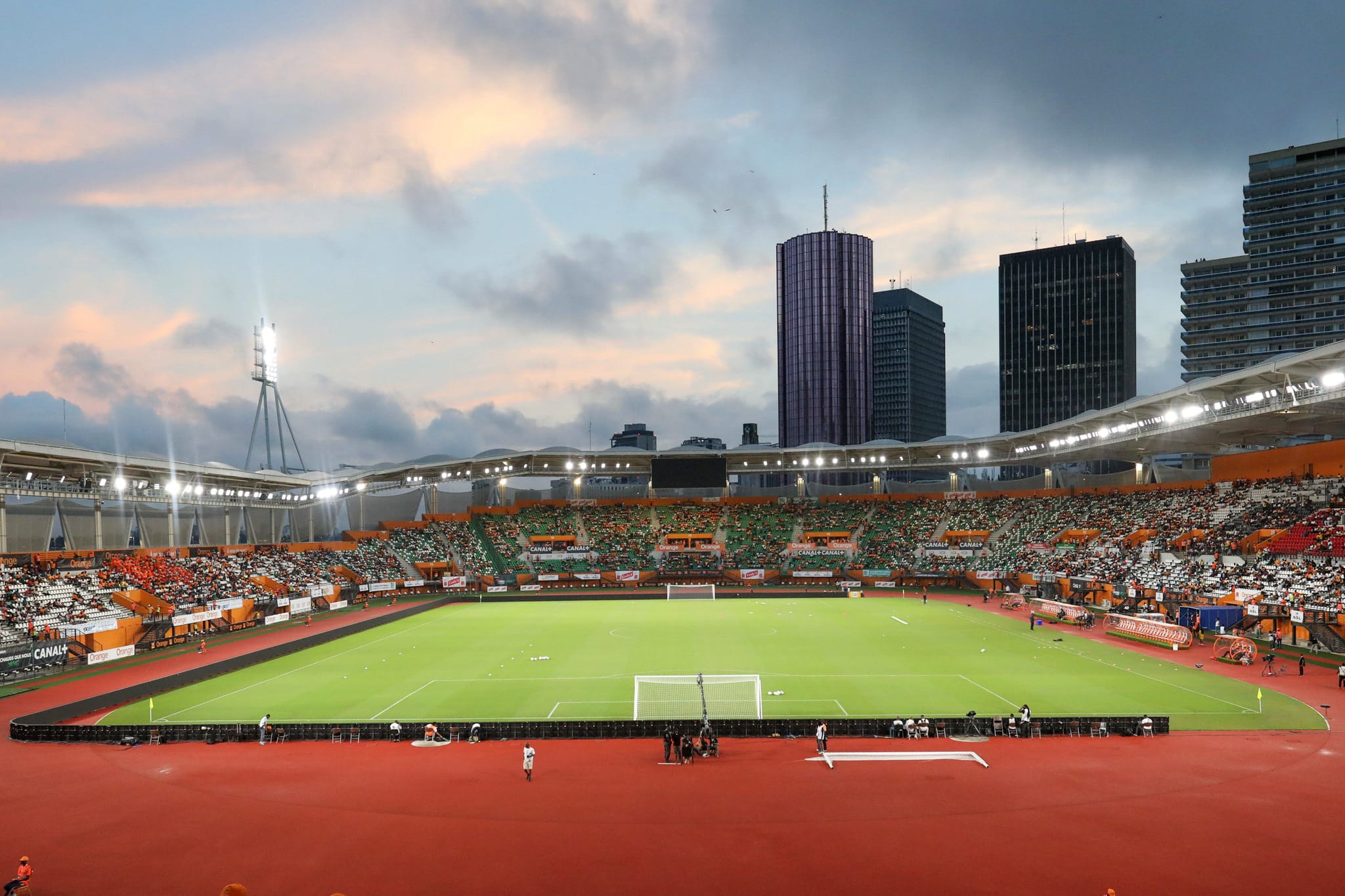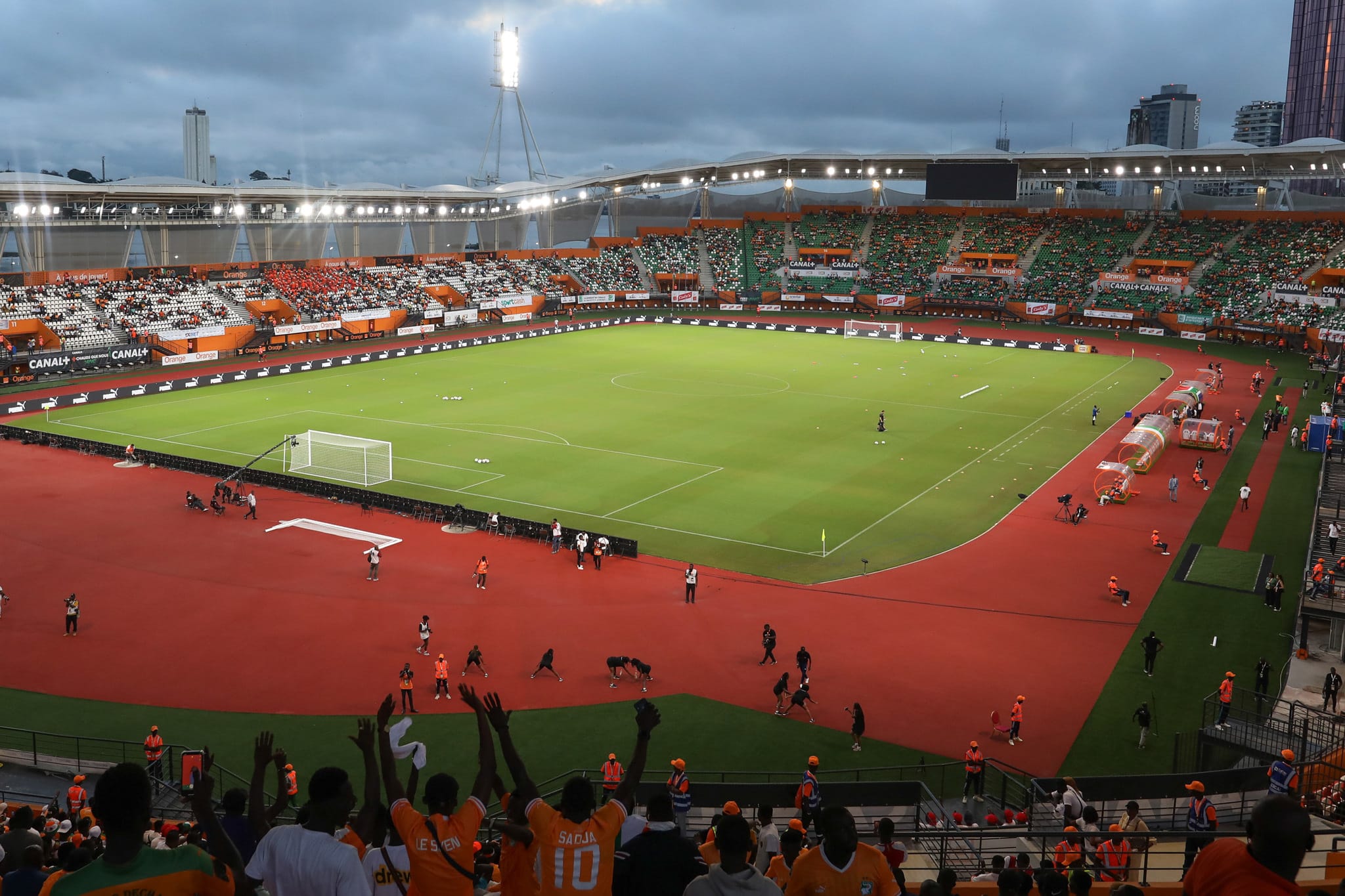The 50,000-capacity former national stadium the Felix Houphouët-Boigny Stadium will host ten matches at the 2023 Africa Cup of Nations, including the third-place play-off.
Nicknamed La Félicia, the Felix Houphouet Boigny Stadium hosts football, rugby union and athletics in Abidjan, the capital of Ivory Coast.

History of the Houphouët-Boigny Stadium
Stade Felix Houphouet-Boigny was renovated in 1964 in anticipation of the ‘Games of Abidjan.' At that time it was known as Stade Andre Geo. That year, it was renamed Stade Félix Houphouët-Boigny after the country's then-President.
It quickly became the home of Ivorian national team, as well as hosting ASEC Mimosas and other sports teams.
In 1984, it was one of the host stadiums for the Africa Cup of Nations, alongside Bouaké's Stade de la Paix.
In 2002, the Ivorian great Didier Drogba made his international debut for Les Elephants in an Afcon qualifier.
In 2009, the Stade Felix Houphouet-Boigny hosted the African Championship of Nations, a tournament in which countries compete only with players who compete in their home leagues. Ahead of the 2009 competition, further renovation work was completed.
Further renovations have occurred since, partly due to the disasters detailed below, including in 2017 and ahead of Afcon 2023. There have, however, been complaints about the quality of the pitch, as at many Ivorian stadiums.
Disasters at Felix Houphouët-Boigny Stadium
Two fatal stampedes have occurred here, in 2009 and 2013. A total of 80 people died in the two events, one of which was a football match between Ivory Coast and Malawi, the other came during a New Year's Eve fireworks display.
Where is the Le Félicia Stadium?
In Abidjan, the capital of Ivory Coast.

Why is it called Felix Houphouet Boigny Stadium?
The stadium is named after the founder of the Ivorian nation, Félix Houphouët-Boigny, nicknamed ‘The Wise', who dominated politics in Ivory Coast until his death in 1993, having been President since the position's 1960 creation.
It has been nicknamed Le Félicia, something like ‘The Felix' in English.
Afcon 2023 fixtures at the Houphouët-Boigny Stadium
| Date | Time (GMT) | ‘Home' team | Result | ‘Away' team | Round | |
|---|---|---|---|---|---|---|
| 14 January 2024 |
17:00
|
–
|
Group B
|
|||
| 14 January 2024 |
20:00
|
–
|
Group B
|
|||
| 18 January 2024 |
20:00
|
–
|
Group B
|
|||
| 19 January 2024 |
14:00
|
–
|
Group B
|
|||
| 22 January 2024 |
17:00
|
–
|
Group A
|
|||
| 22 January 2024 |
20:00
|
–
|
Group B
|
|||
| 27 January 2024 |
20:00
|
Runner-up Group A |
–
|
Runner-up Group C |
Round of 16
|
|
| 29 January 2024 |
17:00
|
Winner Group B |
–
|
3rd Group A/C/D |
Round of 16
|
|
| 2 February 2024 |
17:00
|
Winner R2 |
–
|
Winner R1 |
Quarter-finals
|
|
| 10 February 2024 |
20:00
|
Loser SF1 |
–
|
Loser SF2 |
Third place play-off
|
What is the largest stadium in Africa?
The Houphouët-Boigny Stadium is the second-largest ground in Ivory Coast, and doesn't appear on our list of the largest stadiums in Africa.
| 1 |
FNB Stadium |
94,736 |
Johannesburg |
South Africa |
| 2 |
New Administrative Capital Stadium |
93,940 |
New Administrative Capital |
Egypt |
| 3 |
Borg el-Arab Stadium |
86,000 |
Alexandria |
Egypt |
| 4 |
Stade des Martyrs |
80,000 |
Kinshasa |
DR Congo |
| 5 |
Cairo International Stadium |
75,000 |
Cairo |
Egypt |
| 6 |
Ibn Batouta Stadium |
75,000 |
Tangier |
Morocco |
| 7 |
Prince Moulay Abdellah Stadium |
69,500 |
Rabat |
Morocco |
| 8 |
Stade du 5 Juillet |
64,200 |
Algiers |
Algeria |
| 9 |
Ellis Park Stadium |
62,567 |
Johannesburg |
South Africa |
| 10 |
Abuja Stadium |
60,491 |
Abuja |
Nigeria |
| 11 |
Stade 7 November |
60,000 |
Rades |
Tunisia |
| 12 |
Alassane Ouattara Stadium |
60,000 |
Abidjan |
Ivory Coast |
| 13 |
Stade Municipal de Kintele |
60,000 |
Brazzaville |
Congo |
| 14 |
National Stadium |
60,000 |
Dar es-Salaam |
Tanzania |
| 15 |
Paul Biya Stadium |
60,000 |
Yaounde |
Cameroon |
